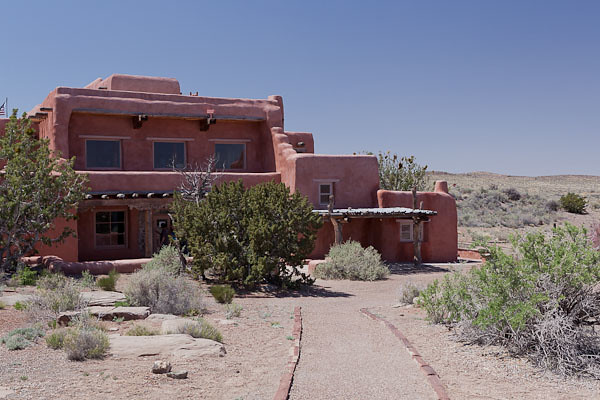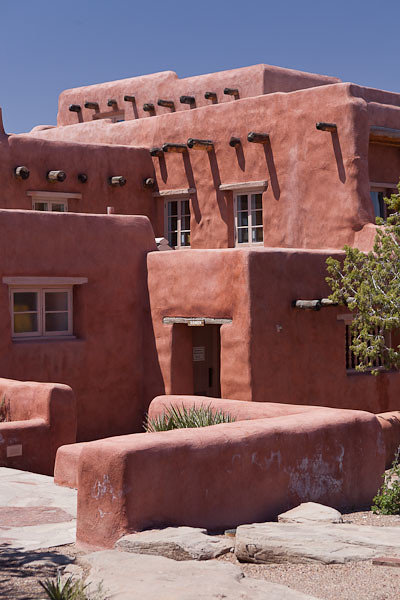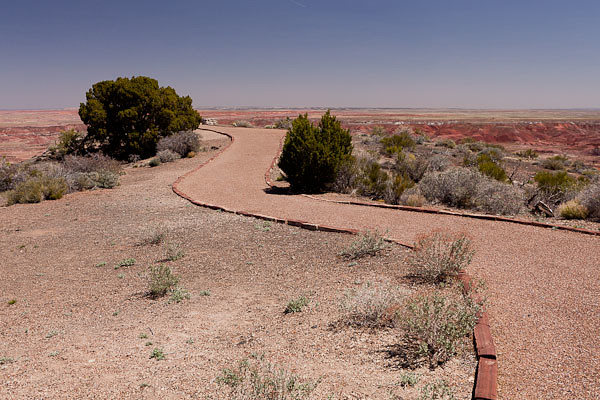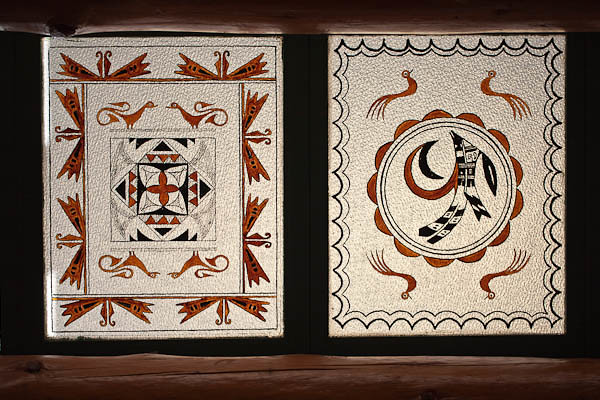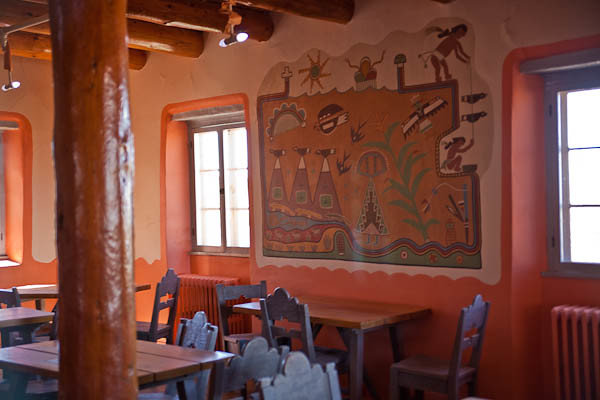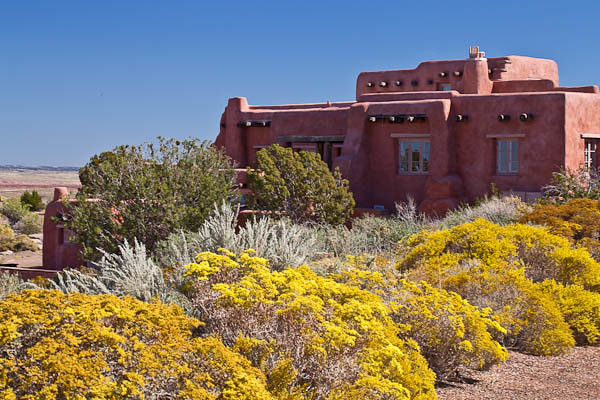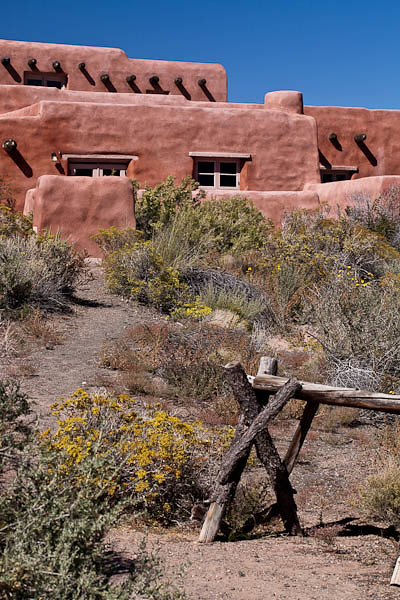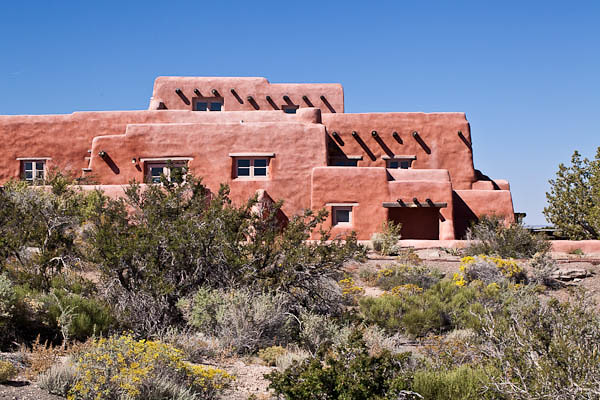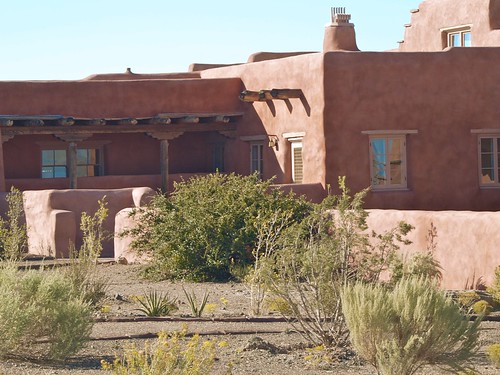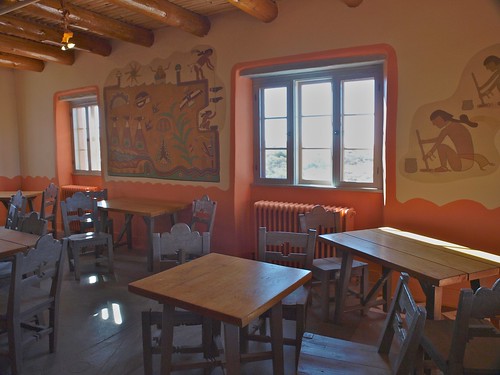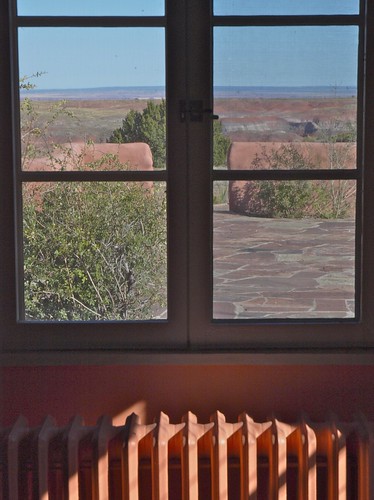
https://drcarlosarzabe.com/dr-carlos-arzabe/ Window in Adobe © 2013 Bo Mackison
Ordering Tramadol Online The Painted Desert Inn is within the boundaries of the Petrified Forest National Park and on the original Route 66. It is situated high on a mesa overlooking the Painted Desert.
Built in the early 1920s by Herbert D. Lore, it offered lodging and dining in a remote setting on the Colorado Plateau. Purchased by the National Park Service in 1935, it underwent extensive remodeling under the supervision of architect Lyle Bennett. Men in the Civilian Conservation Corps (CCC) did much of the labor.
The building’s red-stucco, stone walls are more than two feet thick. Multiple layers, flat roofs with Ponderosa Pine beams, and flagstone courtyards add great character and the high desert sunlight offers contrast between light and shadow.
Imagine being a visitor to the lodge in the early 1940s. A traveler could get lodging, meals, souvenirs…and an unforgettable view of the setting sun from this overlook point at the rear of the building.
(The inn was restored in 2006 to look as it did in 1946. It is now a museum and a National Historic Landmark.)
——————
Bo Mackison is a photographer and owner of Seeded Earth Studio LLC. As she travels cross-country, she is visiting National Parks and Monuments on her route.
